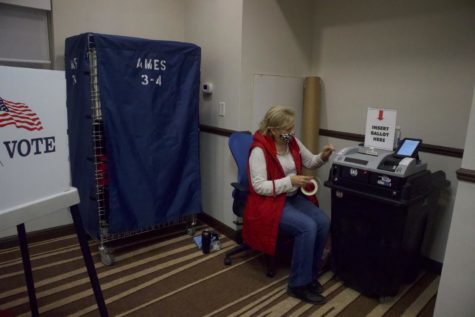VIEWPOINTS: No person is immune to accidents
April 15, 2010
Accidents happen, and everyone makes mistakes. There is no getting around that. For most aspects of our lives, a mistake or an accident has a simple solution. We can clean up spilled milk. We can reassemble a table if we didn’t do it right the first time.
But what happens if a condom breaks? What if you realize you forgot to take your pill last night and you had sex? What if you didn’t use any form of birth control? Worse still, what if this wasn’t an accident and you were sexually assaulted?
Those who have been in any of these situations know that it is one of the scariest experiences you’ve ever had. It’s stressful, isolating and it is life-altering to say the least. What can you do when this happens? How can you fix something like that? If it’s pregnancy you’re worried about, you do have an option: emergency contraception.
Also known as the “morning-after pill” and by brand names Plan B One-Step and Next Choice, emergency contraception will prevent a pregnancy from occurring if taken within 72 hours after having unprotected sex. The sooner emergency contraception is used, the more effective it will be.
But before we go any further, one thing needs to be made very clear about Plan B and Next Choice. These are not — I repeat, these are not — abortion pills. The abortion pill is called RU486, and it will terminate an early pregnancy. Plan B and Next Choice will have no effect what-so-ever on an existing pregnancy and are therefore not the same as RU486. If you are already pregnant, do not take an emergency contraception pill. It will do absolutely nothing.
That being said, emergency contraception works in much the same way as normal birth control pills do. The medication contains a very high dose of levonorgestrel, or synthetic progesterone, which prevents or delays ovulation — the release of an egg from the ovaries. Typically, the man’s sperm will “meet up” with the woman’s egg inside of her fallopian tubes. However, if ovulation does not occur, the sperm has no egg to “meet up” with. Therefore, fertilization cannot occur, which makes pregnancy impossible. If ovulation has already occurred, Plan B causes the uterine lining to thin and shed, which prevents the egg from attaching to the uterine wall. The egg is released from the body, and pregnancy is prevented.
There are actually a few different methods of emergency contraception. Plan B One-Step is exactly how it sounds. It is a one-dose pill that is to be taken as soon as possible after unprotected sex. Next Choice is a series of two pills, one to be taken as soon as possible and one to be taken 12 hours after the first pill. Some brands of regular birth control pills can also be used as emergency contraception. With this method, one is typically instructed to take five of their regular birth control pills all at once. Make sure to talk to a health care provider before using your own birth control for this purpose to make sure it is one of the brands that is approved, as not all brands can be used for emergency contraception.
It is also important to note that emergency contraception should not be used as a regular form of birth control. When taken within 72 hours after unprotected sex, Plan B has an 89 percent chance of preventing pregnancy. When regular birth control pills are used for emergency contraception, they have a 75 percent chance of preventing pregnancy. Although the chances of preventing pregnancy are high, they fall short when compared to conventional birth control methods.
Consistent and correct use of hormonal birth control has a 95-99.9 percent chance of preventing pregnancy, while regular use of condoms has a 97 percent chance of preventing pregnancy. Put simply, regular birth control is a much better option than emergency contraception. If you really want to be safe, use conventional methods instead of just buying emergency contraception every time you have sex.
Another thing to remember about emergency contraception is that it offers no protection against STDs. This is also a reason why it should not be used as a regular form of birth control. If you are worried that you may have contracted an STD, make sure you get tested. Emergency contraception will not be of any help in this matter.
Plan B and Next Choice are available over the counter to anyone over the age of 17. No prescription is needed, just a valid ID to prove your age.
Those who are under 17, however, do need a prescription. If the pharmacy you go to does not provide these medications, usually they will be able to refer you to another facility that has them available. The cost is usually between $10 and $70. However, some clinics will offer it for free or a low cost if you schedule a visit for a prescription.
No one is immune to accidents, and no one leads a mistake-free life. These things can happen to anyone, no matter how careful you are. If you find yourself in a contraceptive bind, know that you are not alone and you do have options.
Leah Hirsch is a Students 2 Students Peer Educator HIV/AIDS Counseling, Testing and Referral Intern for Johnson County Public Health.







